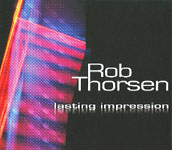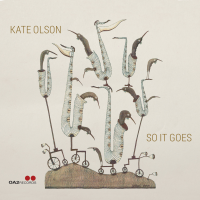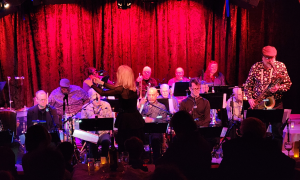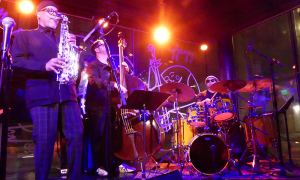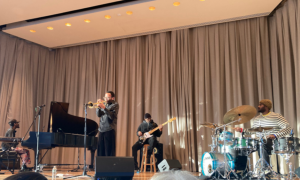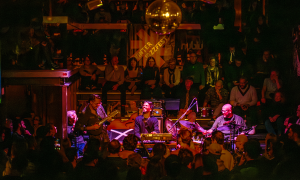Home » Jazz Articles » Live Review » Sacred Beats: Zakir Hussain with Charles Lloyd, Eric Har...
Sacred Beats: Zakir Hussain with Charles Lloyd, Eric Harland, and Members of Remember Shakti at Carnegie Hall
After so many high velocity solos, one expected either the tabla or the hands themselves to start smoking.
Carnegie Hall: Stern Auditorium / Perelman Stage
New York, NY
April 29, 2009
On April 29th, the last concert of his Perspectives series at Carnegie Hall, Zakir Hussain entered and bowed to the applause of a packed house. After thanking the musicians and crowd, he announced that the date marked the ninetieth birthday of his guru and father, the late Ustad Alla Rakha, who first set Hussain on the path to becoming arguably the world's greatest tabla player.
"This is the day we play from him," he said, and introduced multi-instrumentalist Charles Lloyd and drummer Eric Harland to the stage for the first act of the night. Together, this trio has performed as Sangam, blending shades of Indian classical music with jazz tints and free improvisation.
To begin, Lloyd went to the piano and played a soft, simple melody, while Harland made hypnotic patters with a rainstick. The crowd settled in, as Hussain rubbed his hands and gave a few soft, expert taps of percussion. Harland moved from his drums to sit alongside Lloyd, seamlessly matching hands, so that they carried the line through the octaves.

Hussain hummed softly into his microphone, a soft drone that soon swelled through the room, followed by another tempting patter of tablas. Lloyd then picked up his alto flute and soloed with a dark and sensuous tone, evoking sacred Sufi music.
Meanwhile, Harland looked like a man in a trance. With one hand, he droned on a deep piano note, eyes closed. With the other, he seemed to be battling the instrument, pounding his fist on top, and even smashing his elbow into the keys. As Lloyd finished, Hussain launched another swelling cry, and the piece ended to thunderous applause.
Lloyd then played some bright, reedy alto sax, which blended Eastern music with an Ornette Coleman bluesiness, seguing into a whirling duel between the percussionists. Harland's rocking drums then led the way into a third piece, as Lloyd filled the hall with resonant, sacred-sounding tenor sax. When Hussain's hands began to ripple along the tablas, all three locked into a unique and intricate group sound.
Eventually Lloyd's Coltrane cries, subtones, and multiphonics gave way to the dizzying patters and resounding pounds of the tabla, punctuated by scraping cymbals. The two percussionists again engaged each other in a display of unison playing, which changed groove and feel on a dime. It was a display in musical telepathy which elicited laughter and awe.
Hussain then added guest pianist Jason Moran, and took a slightly more restrained approach for the next song, thomping out a hip, water drum-like bass line. For an ecstatic performer who can fill a room with sound, Moran stepped carefully. Even during his sparse, rhapsodic solo, he seemed very much aware of the percussive heartbeat at the center of the group. Meanwhile, Lloyd on the soprano sax-like tarogato wound nasal paths around Harland's funky suggestions.
For the last two pieces of the set, Hussain welcomed vocalist Shankar Mahadevan and electric mandolinist U. Shrinivas. The former brought in elements of Indian pop, while the latter seemed slightly unsure of his place in the mix.
Though everyone was good, the players with the most to say remained the core trio of Hussain, Lloyd and Harland. No one dominated. Lloyd's horn, rather than leading, sent beams of light around a landscape spun between the two percussionists. Harland always added something, whether singing a deep bass drone or ringing soothing tones from a steel drum at his side. Hussian was simply a master. As musical as it all was, anyone present would have loved to hear this set again, just to try and pick out what might have been missed the first time around.
If the first half of the show was a display of flexibility and chemistry, the second was pure virtuosity. Featuring members of the band Remember Shakti, this music was more strongly rooted in classical Indian tradition. Mahadevan, Shrinivas, and Hussain returned, along with the gifted V. Selvaganesh on kanjira, a small, tambourine-like instrument.
Mahadevan, one of the beloved voices of Bollywood, displayed dizzying breath control and range. He also engaged the audience for a section of call and response, and drew huge ovations for his long, flying chants.
Meanwhile, electric mandolin player U. Shrinivas found his place, and exploded. At times creating tambura- like tones behind the voice, and at others sending out dizzying sitar lines, Shrinivas showed off just how well an instrument can adapt in the hands of a master. He and Mahadevan performed transcendent, high speed lines in unison, drawing wild cheers as they made the impossible look simple.
Similarly, when Selvaganesh got going, he brought more expression to his little instrument than most drum kits see in their careers. One solo lasted at least five minutes, winding up and down in hypnotic intensity. And when the last beats faded away, the quiet filled with perhaps the loudest applause of the night.
By far the most excited guest of the night was Selvaganesh's father, T. H. "Vikky" Vinayakram, master of a clay pot percussion instrument known as the ghatam. He engaged Hussain in a percussive display that was both dazzling and playful. Gray hair flying, his hands rolling over the instrument, he engaged Hussain in a percussive display that was both dazzling and playful. As he closed, he tossed his ghatam up in the air, prompting Hussain to do the same with his tabla.
When Vinayakram left the stage, final guest Bela Fleck joined the group, once again proving that there's nothing he can't do on banjo. While lacking the lightning chops and fluidity of Shrinivas, his conversational adaptability brought a light-hearted ease to the music.
All night long, Hussain mixed musicianship with a warm humility. At the end, his fleet hands and virtuoso skills were unquestionable, but he had also offered up moments of subtle dynamic beauty. Every musician called to the Carnegie Hall stage had had their chance to shine, and there was a sense of great contentment throughout the hall as Fleck and the four Remember Shakti players jammed over a final tune.
After so many high velocity solos, one expected either the tabla or the hands themselves to start smoking. And after such a performance, clapping two palms together seemed too simple. Nonetheless, the Carnegie Hall crowd, which had started enthusiastic and drawn in more with each pulse, sent out their own polyrhythms. At the center of the grateful swell, Hussain wiped away his sweat, smiled wide, and bowed.
Photo Credit
Jack Vartoogian
Tags
PREVIOUS / NEXT
Support All About Jazz
 All About Jazz has been a pillar of jazz since 1995, championing it as an art form and, more importantly, supporting the musicians who make it. Our enduring commitment has made "AAJ" one of the most culturally important websites of its kind, read by hundreds of thousands of fans, musicians and industry figures every month.
All About Jazz has been a pillar of jazz since 1995, championing it as an art form and, more importantly, supporting the musicians who make it. Our enduring commitment has made "AAJ" one of the most culturally important websites of its kind, read by hundreds of thousands of fans, musicians and industry figures every month.




